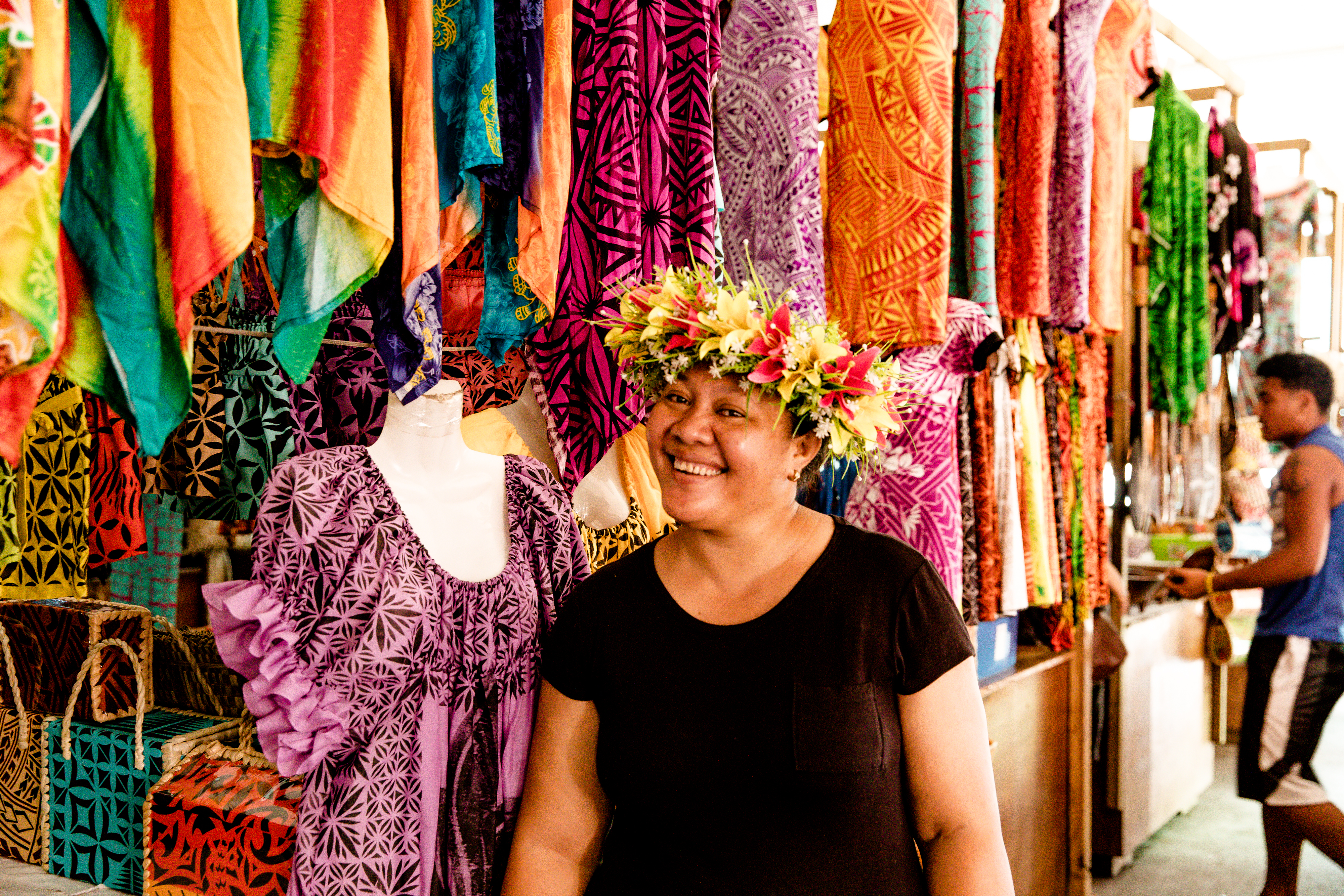
Small businesses in Samoa are essential to a diversified and sustainable economy that focuses, in the Polynesian way, on community-based and community-owned development. In the pandemic recovery, small businesses will power sustainable food security, revitalised tourism, business growth, labour mobility and macro-economic stability. Equitable and inclusive economic recovery and growth at the community level—including for women and girls, people with disabilities, and other marginalised groups—is a priority for the Government of Samoa, and this focus is captured in its Pathway for the Development of Samoa.
DT Global provides a wide range of support to Samoa’s businesses through the MFAT Business Link Pacific Program, to small landholder farmers through the DFAT and MFAT PHAMA Plus Program, to small businesses in Samoa on our USAID Climate Ready Program, and to the Government of Samoa through our work with the PACER Plus Implementation Unit.
To hear local perspectives, we sat down this month to talk with Shelley Burich, a Samoan entrepreneur, and Hobart Va’ai, CEO of the Samoa Chamber of Commerce & Industry, about the SMEs in Samoan society and their visions for the future of this sector.
Shelley: SMEs are essential in Samoa and play a huge social and economic role in the country. Not all families and individuals come from a long line of well-established family business holders and not all of us have access to huge land estates or financial resources to be large-scale and commercial entities. SMEs drive the economy because there are more of us than commercial-sized business owners. We provide entrepreneurship, niche and unique products and services, and employment for our communities too, even if it might be small-scale.
We are closer to the ‘ground’ so to speak, so we understand our communities and their needs better than larger companies. I believe SMEs are in a better position to diversify and adapt to major economic changes too, such as the pandemic. In response to the pandemic, it was easier for many SMEs to diversify quickly to e-commerce measures that were easy and affordable for them, such as online stores, money transfer, mobile apps, Facebook shops, and others. Our business continued.
Shelley: From my own experience, when doing business, Samoans can be very ‘casual’ about it. It is different than most Westernized businesses, particularly for small urban and rural entrepreneurs. It can be expensive doing business in Samoa too, with high set-up and registration fees, labour costs, imported raw products, and freight costs out of Samoa.
For women entrepreneurs, doing business can be quite a challenge. Samoan women, like most Pacific Island women, are usually the main caregivers and managers of their family and extended households. They are expected to contribute to the village commitments, women and church committees, village fonos (councils), and matai (Samoan chief) commitments (if they hold a matai title).
Samoan women tend to do business the same way as they would manage the family household—catering to the family’s needs and challenges first before putting that business profit back into the business. Of course, there are many successful women business owners here in Samoa, but you will find that they are mainly long-time family business owners, educated, financially literate, or have had the overseas experience of doing business before starting one here.
Hobart: From a logistical side, doing business in Samoa requires a business licence with the Ministry of Revenue and registering for taxes. For companies, registrations are done with the Ministry of Commerce, Industry & Labour before applying for a business license. Furthermore, like other economies, it is beneficial to have knowledge about markets, the economy, government regulations, and business community networks. Samoa's major industries include agriculture, manufacturing, and the service sector. The manufacturing sector processes agricultural products for the most part accounting for 90% of exports with coconut cream, coconut oil, and copra comprising the majority of production. Tourism drives the service sector in Samoa which normally employs about half of the formal labour force.
Hobart: My aspiration for the SME sector in general is to build sustainable and resilient businesses by adopting diversification and innovations through digital transformation and technology.
Shelley: My aspiration for my businesses is obviously to be successful first! And then I want to be able to leave a legacy for my grandchildren—whether it is to be a financial and physical company legacy or a legacy of how to be a successful entrepreneur.
Success for me is seeing the joy my vanilla customers have when they use our vanilla products for the first time. It is seeing new vanilla growers become proud of what they are growing and seeing the bigger picture of what this new crop could do for them and their family in the future. Success is seeing more women entrepreneurs take their business online using a fully functional online platform such as Shopify. Success for me is knowing I have contributed to the economic empowerment of women—either through vanilla growing or ecommerce.